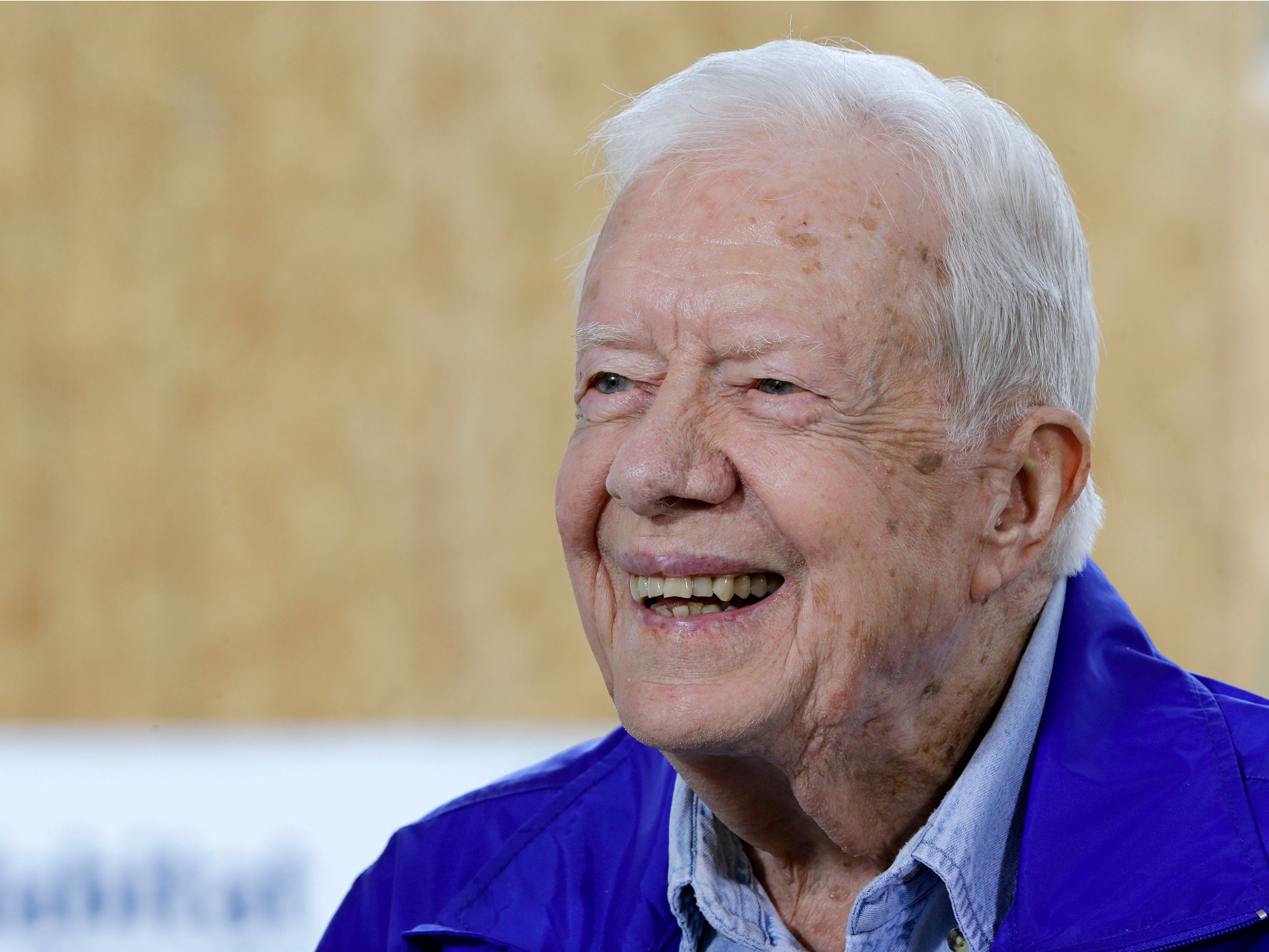Jimmy Carter is no longer being treated for cancer. Immunotherapy has made him cancer free.
Adam Rifkin stashed this in Medicine
Stashed in: Awesome, Cancer, Medical Breakthroughs, Cancer, Immunotherapy
Former President Jimmy Carter is no longer being treated for cancer.
In December 2015, Jimmy Carter revealed he had tested cancer free only a few months after initially sharing that he'd been diagnosed with metastatic (meaning it's spread from its primary spot) melanoma that had spread to his brain. Just a few months later, his doctors have let him know he no longer needs to be treated.
Carter, 91, had used a combination of radiation therapy and Keytruda, a relatively new kind of cancer drug, which was delivered intravenously once every three weeks.
For decades, doctors have treated patients using a combination of chemotherapy, radiation, and surgery to try to stifle the disease.
But in the past few years, doctors have started researching and using a promising tool: immunotherapy.
Unlike chemotherapy, which involves administering powerful drugs that kill both cancerous and healthy cells (most healthy cells can repair themselves), immunotherapies harness the power of the immune system to help it identify and knock out just the cancerous cells.
In cancer patients, a type of protein called PD-1 stops the immune system from doing its job and fighting the cancerous cells. Keytruda — the drug Carter used — gets in the way of those dysfunctional proteins, allowing the immune system to access the cancer cells. Then, with the help of the radiation therapy to shrink tumors, it can help knock out the cancer in some people.
The incredible success of the drug in Carter's case brought the treatment into the spotlight, but the therapy has been a long time coming.
Immunotherapy is a very promising path for cancer treatment.
Immunotherapies are working incredibly well for some cancers, such as melanoma, lung cancer, head and neck cancer, and multiple myeloma.
Yet for others, there's still a lot to learn.
"We're a long way from knowing the full story," said O'Donnell-Tormey. For example, while Keytruda, the drug Carter used, has worked "dramatically well," it still doesn't have a success rate on its own that's anywhere close to 100% for the type of cancer it targets. "We need to understand why someone like Jimmy Carter is responding."
In fact, roughly 30% of metastatic melanoma patients using Keytruda alone respond completely. That's still better than the average response rate of chemotherapy treatments on their own in cases of metastatic melanoma. When the drug is combined with others, that success rate goes up, which also holds true for other medications like chemotherapy. But for those who still don't respond at all, that's the challenge. And combining different medications and therapies might be the answer.
This year was a good one for immunotherapies: In October 2015, Keytruda was also approved to treat a form of lung cancer. It moved forward in getting developed to treat a wide variety of other cancer types as well.
In the last year, Opdivo, another drug that targets the PD-1 protein like Keytruda and was originally approved to treat patients with certain types of melanoma, was also approved to treat forms of lung cancer and kidney cancer.
In blood-cancer treatment, 2015 saw the approvals of more than one multiple-myeloma immunotherapy. Others went so far as to get approval for a genetically modified herpes virus t hat's programmed to kill tumor cells in patients with melanoma that recurs after surgery (making history as the first cancer viral therapy).
And investors expect new cancer immunotherapies to make billions of dollars in sales in the next couple of years.
Stay tuned — it's only going to get bigger and more complicated from here.
A few Reddit comments:
https://reddit.com/r/Futurology/comments/49cuma/jimmy_carter_is_no_longer_being_treated_for/











10:01 PM Mar 07 2016